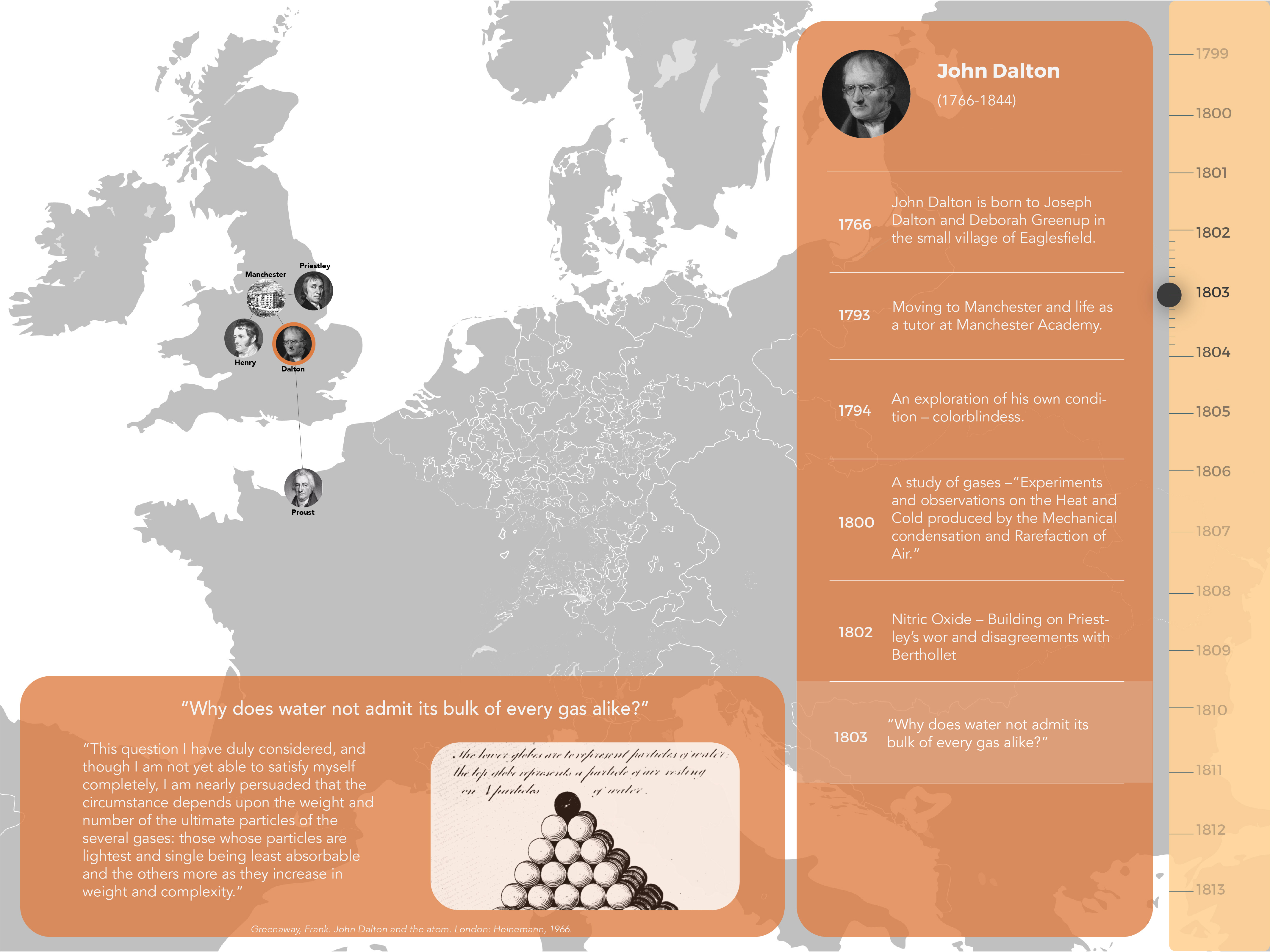A Situated History of Atomic Models

Screenshot of the visualization interface. Users can navigate in a variety of ways such as by clicking on the thumbnails in the map, dragging the map, setting the timeline on the right, or selecting key events. Together this mulitplicity of interactions reinforce a non-linear navigational experience that is aligned with the ethos of the project.
The history of the atom is commonly illustrated as a linear monotonic improvement in atomic models driven by lone scientists. Such depictions have been challenged on the grounds that they paint a reductive picture of science that disregards the role of community, social values, and systemic power structures in scientific inquiry. Yet, there is an absence of alternative visualizations that engage such sociopolitical factors. How can the history of science be illustrated to elucidate the entanglements of science and society? Drawing on STS and feminist science scholarship, this project critically examines the historical relationships between scientific and sociopolitical problems. Specifically, we present an interactive visualization that invites inquiry into the problems of atomic research before the 20th century and their connection to the problems of the (European) societies in which atomic research was conducted.
The goals of this historiography are threefold. First, we aim to show how the subject-matter (and not just the context) of science is entangled in its sociopolitical circumstances and consequently, demonstrate the value of Haraway's concept of ’situated knowledges’ to the historical analysis of science. Second, we aim to provide an alternative approach to the visualization of science history that goes beyond linear ‘factual’ timelines and embraces the inherent non-linearity, simultaneity, and diversity of scientific research while being reflective of its own limitations. Finally, through our process of reviewing literature on atomic history, we aim to investigate how and why certain scientific models are historically prioritized over others despite being comparably (in)valid in those times.